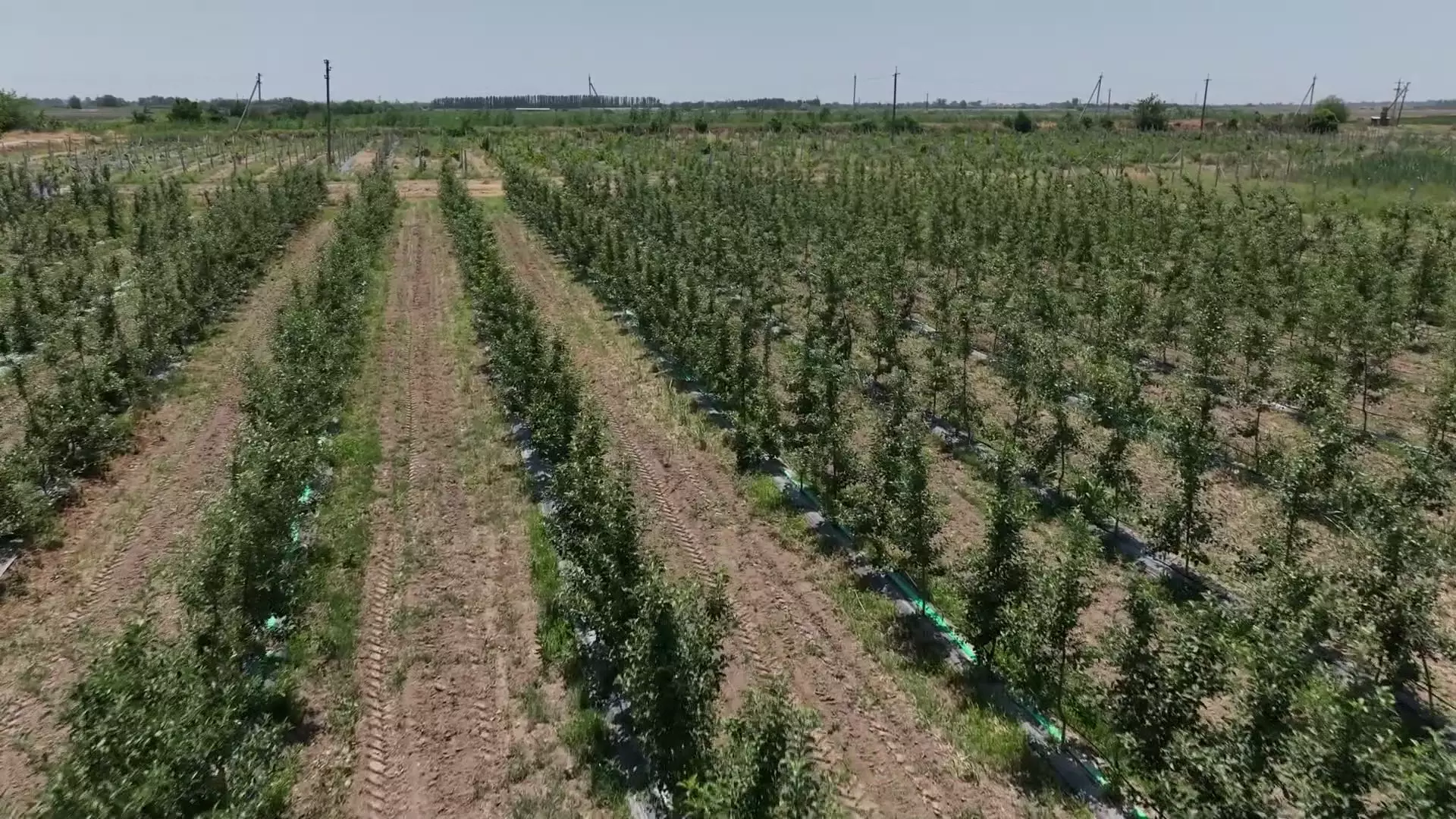UZBEKISTAN, June 17th (AMSP/CGTN) – – As China deepens its ties with countries in Central Asia, agriculture is emerging as a key area of cooperation. In Uzbekistan, Chinese technology and expertise are helping local farmers grow more—and grow better. CGTN’s Xu Xinchen takes us to an orchard outside Tashkent, where apples and partnerships are taking root.
Just over an hour’s drive from Uzbekistan’s capital, Tashkent, an orchard greeted me at the start of a brand-new day in Central Asia.
Accompanied by Tursunov Jonibek, a staff member here, I explored the hidden gems of agricultural cooperation between China and Uzbekistan.
I see some apples are already growing, right? “These trees are in their fourth year. The seedlings were first cultivated in China for two years, then brought here and continued growing—so this is their fourth year in total,” replied Tursunov Jonibek, Staff of China-Uzbekistan Modern Agricultural Science and Technology Demonstration Park.
6,000 apple trees stand before us. It takes four years for these trees to bear fruit. Jonibek tells me that local apples are usually small. But with advanced cultivation techniques from China, he hopes these apples will grow big and juicy.
“This is the drip irrigation system. Water comes in from here, and fertilizer is added from this side. When it’s dry, the system helps conserve moisture by slowing down evaporation,” said Tursunov Jonibek.
For fruit trees, water is everything. Temperatures here can reach 40 degrees Celsius— And this is just spring. Keeping the soil moist is crucial. This orchard is part of a demonstration base for agricultural technology exchange and training under the Shanghai Cooperation Organization, of which both China and Uzbekistan are members.
Besides fruits, here are also greenhouses? “Yes, we also have greenhouses for vegetables. Chinese vegetable varieties are really good,” replied Tursunov Jonibek.
Fresh vegetables, familiar to Chinese kitchens, are in high demand. The greenhouses here were built with Chinese support. Each one can yield up to half a ton of produce— And the vegetables are sold almost immediately.
“Our exchange center was officially launched in December 2022, marking the beginning of China’s agricultural commodity hub under the SCO in Uzbekistan. In 2021, our trade volume was just over 9 million yuan. By 2023, it had grown to 140 million. In 2024, we reached 150 million. This year, we expect to hit at least 200 million yuan,” said Chen Bing, General Manager of Yangling Modern Agriculture International Cooperation.
Chen says Chinese products are popular here due to their affordability. Advanced agricultural machinery has also been introduced— Helping local farmers adapt and grow more efficiently.
“We’re happy to work with our Chinese partners. It benefits both sides. We learn new techniques from them, which helps us increase our yields and earn more money. With that, we can explore more opportunities and start new projects,” revealed Tursunov Jonibek.
amsp/cgtn-abp
CGTN

